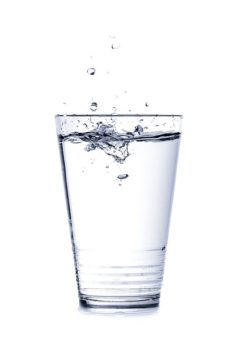Dentist 48162

Some of the oral health issues commonly associated with dry mouth include:
• Much higher rates of tooth decay
• Oral yeast infection
• Bad breath (halitosis)
• Periodontal (gum) disease
• Constant sore throat
• Soft tissue infections
• Difficulty swallowing
• Denture discomfort
The most common cause of chronic dry mouth is medication. More than 400 over-the-counter and prescription medications include dry mouth as a frequent side effect. Dry mouth is also associated with stress, autoimmune and other systemic diseases, hormonal changes, radiation or chemotherapy treatment for cancers, and salivary gland disease.
You may find relief from dry mouth through a variety of methods. Some easy options to help alleviate your dry mouth include:
• Increased water intake
• Sugar-free candies or gum
• Artificial saliva, as recommended by doctor or dentist
• Alcohol-free mouthwash
• Limiting alcohol, caffeine, and carbonated soft drinks
• Use a humidifier to add moisture to the air in your home
• Change in medication, only as directed by doctor
Brush and floss regularly to help prevent tooth decay, gum disease, and other complications.
If you are experiencing dry mouth, make an appointment and be sure to tell our team. We will review your medications and perform a thorough dental exam to check for any potential underlying oral health issues.
For more information about dry mouth, contact our office.
Gregory A. Balog, DDS of Monroe
1049 N. Macomb St.
Monroe, MI 481620
(734) 242-4334

 Request an Appointment
Request an Appointment
 Your mouth is a gateway to the rest of your body. Bacteria of all kinds are present in your mouth. While some are benign, others may pose a threat to your health. Maintaining a daily oral hygiene routine and visiting our dental office for regular appointments can help keep your mouth free of harmful bacteria. Below are 3 common ailments that have been shown to be negatively impacted by poor oral health. Read the information below if you suffer from any of these conditions and are worried that your oral health might be a contributing factor.
Your mouth is a gateway to the rest of your body. Bacteria of all kinds are present in your mouth. While some are benign, others may pose a threat to your health. Maintaining a daily oral hygiene routine and visiting our dental office for regular appointments can help keep your mouth free of harmful bacteria. Below are 3 common ailments that have been shown to be negatively impacted by poor oral health. Read the information below if you suffer from any of these conditions and are worried that your oral health might be a contributing factor. A happy smile is a healthy smile! There are a number of steps you can take to keep your smile healthy by reducing your risk of developing tooth decay. Here are a few suggestions from our team.
A happy smile is a healthy smile! There are a number of steps you can take to keep your smile healthy by reducing your risk of developing tooth decay. Here are a few suggestions from our team. Calcium is an important mineral for building strong, healthy teeth. Not everyone can tolerate the lactose found in dairy, which is often a prime source for calcium. There are a wide variety of options available to get the calcium you need. Here are six options rich in calcium:
Calcium is an important mineral for building strong, healthy teeth. Not everyone can tolerate the lactose found in dairy, which is often a prime source for calcium. There are a wide variety of options available to get the calcium you need. Here are six options rich in calcium: It is not uncommon for many of us to grab a bite to eat in a hurry. Americans have grown accustomed to bigger food portions at restaurants, but our mouths have not. Trying to fit that oversized sandwich or apple in your mouth might be worse for you than you have ever imagined. Below are some reasons why this could be detrimental for your oral health and what you can do about it.
It is not uncommon for many of us to grab a bite to eat in a hurry. Americans have grown accustomed to bigger food portions at restaurants, but our mouths have not. Trying to fit that oversized sandwich or apple in your mouth might be worse for you than you have ever imagined. Below are some reasons why this could be detrimental for your oral health and what you can do about it. It can be difficult to get your child to practice proper oral care unsupervised. However, the long-term benefits of an early start to optimal oral hygiene are worth the effort. Below are some tips to help you make oral health a fun part of your child’s daily routine.
It can be difficult to get your child to practice proper oral care unsupervised. However, the long-term benefits of an early start to optimal oral hygiene are worth the effort. Below are some tips to help you make oral health a fun part of your child’s daily routine.

 Do you have white spots on your teeth? Are your teeth quite sensitive? Do your teeth have cracks, chips, or indentations? If yes, then you may be experiencing enamel erosion.
Do you have white spots on your teeth? Are your teeth quite sensitive? Do your teeth have cracks, chips, or indentations? If yes, then you may be experiencing enamel erosion. Is anxiety or nervousness preventing you from visiting our team? Dental treatments should not be a cause of stress. If you worry about pain, embarrassment, or loss or control during a dental examination, we want you to know two very important things: You are not alone and We can help.
Is anxiety or nervousness preventing you from visiting our team? Dental treatments should not be a cause of stress. If you worry about pain, embarrassment, or loss or control during a dental examination, we want you to know two very important things: You are not alone and We can help.